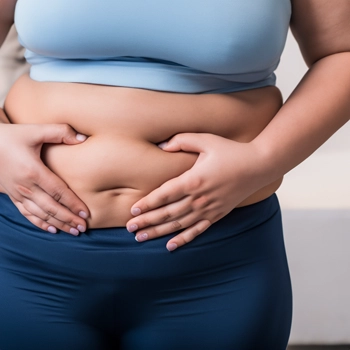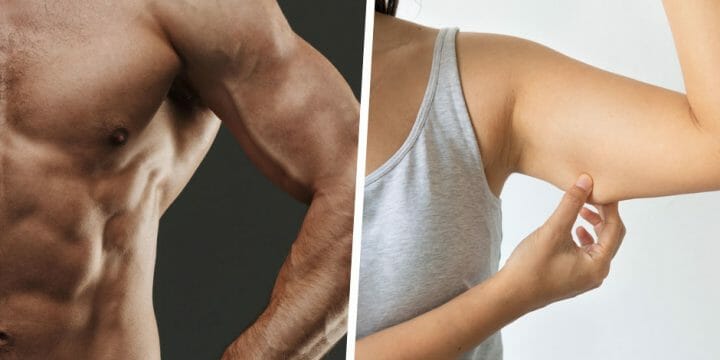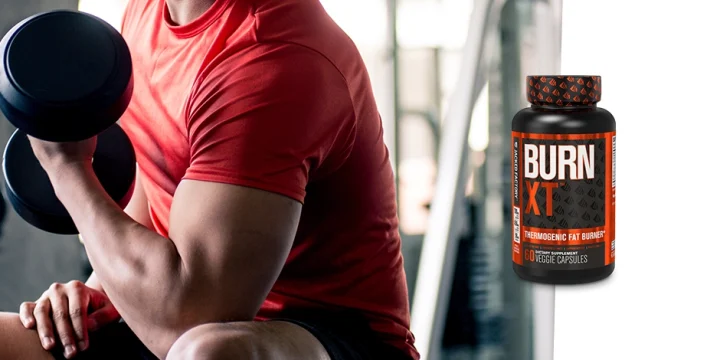In my decade-long journey as a medical professional, I've witnessed firsthand the struggles and triumphs of my patients.
Their successes in achieving an ideal body fat percentage, while preserving muscle, have been a testament to the power of tailored strength training, strategic high-protein diets, and the often-underestimated value of rest.
So, when a friend disclosed how he lost muscle while trying to get his body fat percentage to Ronnie Coleman levels, I had to look into it.
This report compilation is the result of my thorough investigation of the subject matter. I also consulted a highly acclaimed physical therapist for this report.
Let’s dive in.
Quick Summary
- The body burns fat first, typically only turning to muscle after depleting other sources.
- Maintaining muscle mass during weight loss is possible with strength training, adequate protein intake, and sufficient sleep.
- A study from PubMed Central indicates that resistance training combined with intermittent fasting can enhance body composition by aiding in weight loss while preserving muscle mass.
- In my view, understanding the body's energy hierarchy is crucial for anyone looking to optimize their fitness regimen for fat loss while preserving muscle.
Which Burns First, Fat or Muscle?

The body's decision to burn fat or muscle is significantly influenced by hormones. For instance, cortisol, a stress hormone, can lead to muscle breakdown, while insulin, growth hormone, and testosterone can promote fat metabolism and muscle preservation.
Fat burns first, usually long before muscle.
However, your body may still choose to burn muscle, but this happens only after glucose is depleted, and either your fat percentage is too low, or your body is poorly fat-adapted [1].
Although breaking down fat stores is a priority, your body's first choice of preference is carbohydrates.
This is mainly due to the fact that carbs are easily accessible and “combustible”.
Now, the second option, after carbs have been used up in the body, is glycogen. Glycogen is the glucose stored in the liver and muscles [2].
Only after glycogen stores start to get low does the body turn to fat stores for energy.
After burning fat, the next stop is muscle tissue. So, technically, fat goes in first when glucose and glycogen are unavailable in sufficient quantities.
This brings us to the million-dollar question.
Can You Maintain Muscle Mass in Weight Loss?
Yes, you can maintain muscle mass in weight loss, but you’ll have to follow strict eating and fitness guidelines to preserve muscle while burning fats.
Adequate sleep plays a crucial role in muscle recovery and preservation. Lack of sleep can elevate cortisol levels, leading to muscle breakdown. Ensuring 7-9 hours of quality sleep can aid in muscle preservation during weight loss.
How to Lose Fat?

From my hands-on experience with patients, the essence of fat loss often boils down to a simple equation: burning more calories than you consume. But it's not just about cutting calories; the type of exercise, like aerobic training, plays a pivotal role in how efficiently you shed that fat.
I've seen it time and again with my patients: pushing too hard without the balance of strength training often leads to a counterproductive loss of both body fat and precious muscle mass.
Rapid weight loss can lead to muscle loss; aim for gradual weight reduction over time.
Targeting fat loss in specific areas is ineffective; focus on lowering your overall body fat.
A calorie deficit, paired with regular aerobic exercise, is crucial for reducing body fat.
While a balanced diet and consistent physical activity are essential for long-term weight loss success, there are ways to supplement your progress and help keep you on track.
I always remind my patients: supplements are just tools, not magic potions. While they can't replace hard work, the right ones can certainly amplify your efforts and help you reach your goals faster.
How to Maintain It?

To minimize muscle loss, you must balance between pushing hard and limiting yourself.
1. Resistance Training Exercise
A study examining the effect of calorie restriction in combination with endurance and resistance training in adults with obesity, found that when people added these exercise plans to their diet, it prevented muscle loss [3].
“Exercise is key to weight loss,”
- Bartolome Burguera, Endocrinologist, MD, Ph.D
Additional studies show that resistance training workouts in combination with intermittent fasting can improve overall body composition and in particular, losing weight while retaining muscles [4].
2. Enough Recovery Time
When doing intense workouts, eat well and get enough rest time. Recovery time is just as essential as working out. So be sure to get plenty of sleep to restore your energy levels and allow the body to repair the muscle tissue.
3. Eating Healthily
If scientific studies are to go by, consuming enough protein diet puts you at a better chance of retaining lean mass while depleting those fat stores [5].
Amino acids, especially branched-chain amino acids (BCAAs), play a pivotal role in muscle protein synthesis. Consuming amino acid supplements can provide the necessary building blocks for muscle and might help in preserving muscle mass during periods of calorie restriction.
All in all, you need to balance resistance training exercises, a balanced diet with sufficient protein and calories, not overdoing some workouts like aerobic training, and getting enough recovery time.
But in case the unlikely happens and you start losing muscle tissue instead of fat, how would you know?
Related Articles:
Signs You’re Losing Muscle, Not Body Fat

You can always tell when you’re losing muscle tissue. And below are a few signs to look out for when this is the case.
Losing Weight Rapidly
Losing body weight rapidly is not a sign of losing more fat. You’re probably losing muscle instead of body fat.
Fatigue
Fatigue can signal muscle loss, especially if you're weaker or tire more quickly during workouts.
The Plateau Effect
A weight loss plateau may indicate muscle loss if you're exercising and eating at a calorie deficit but not seeing fat loss.
FAQs
Build Muscle or Burn Fat, Which One Should You Do First?
It depends on your goals. If you have a high-fat body composition and have been adding lean body mass for a long time, you should focus on fat burning. But if you’re slim, are new to strength training, or you’re concerned about your body image, you may choose to build more muscle first.
Is It Possible to Cut Fat While Still Building Muscle?
Yes, it's possible to cut fat and build muscle simultaneously. You can do this by sustaining a weight lifting program, maintaining a caloric deficit diet, and possibly by adding a high-quality fat burner into the mix. Prioritize protein-rich foods as they are vital in building and maintaining muscle and fat loss.
Can You Target Fat Loss?
No, you cannot target fat loss. Factors like age, gender, genetics, and hormonal balances influence weight gain and fat loss.
References:
- https://health.clevelandclinic.org/where-does-body-fat-go-when-you-lose-weight/
- https://www.ncbi.nlm.nih.gov/pmc/articles/PMC3248697/
- https://www.ncbi.nlm.nih.gov/pmc/articles/PMC5946208/
- https://www.ncbi.nlm.nih.gov/pmc/articles/PMC4271606/
- https://www.ncbi.nlm.nih.gov/pmc/articles/PMC4892287/
About The Author
You May Also Like






